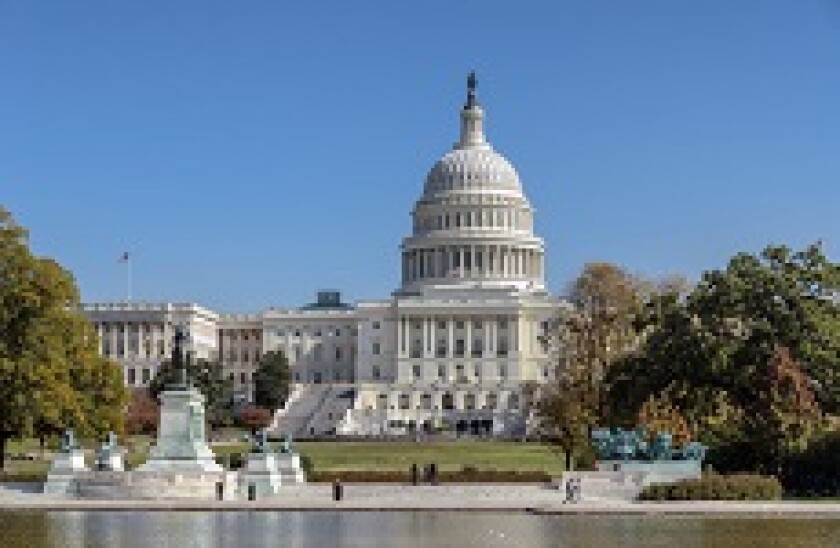Repealing the Affordable Care Act has been the policy position of almost every elected Republican in Washington since it became law in 2010.
Elements of the Republican party attempted to repeal or amend aspects of the law almost continually under President Obama and party bosses made replacing 'Obamacare' the first priority under President Trump.
But speaker of the House Paul Ryan failed to build a coalition around how to repeal the law. Moderate Republicans and hard-line conservatives alike were set to vote against the replacement bill, before it was pulled on Friday — illustrating the challenge Congressional Republicans will have when they tackle Dodd-Frank.
The House Financial Services Committee is keen to repeal a number of aspects of Dodd-Frank, including the contentious Volcker Rule, which many market participants say reduces liquidity.
The committee is holding a hearing on Volcker this week and and has wrapped repeal of the rule into an overarching financial reform bill, which also includes drastic changes to the Consumer Financial Protection Bureau and the elimination of risk retention for all non-RMBS assets.
However, even if committee chairman Jeb Hensarling passes his new reform efforts out of committee, Ryan will almost certainly be reluctant to bring it to the floor of the House if another defeat looks likely.
The problem facing Republicans is simple mathematics. While there are 237 Republicans in the House, 44 more Republicans than Democrats, the party is actually split into three distinct groups.
There are 48 Republicans who make up the moderate 'Tuesday Group', 33 conservatives who make up the 'Freedom Caucus' and 156 mainstream 'Party Republicans'.
The reason why healthcare reformed failed is that the bill was considered too extreme for many moderates and too moderate for the party’s conservative wing.
Dodd-Frank reform also splits conservatives, who want a complete repeal, and moderates, who likely would be unwilling to cast aside many of the reforms which they believe have made the financial system safer.
Democrats will likely be as united behind blocking Dodd-Frank repeal as they were behind blocking repeal of the Affordable Care Act.
If that sounds hard, bear in mind the House is the easier of the two chambers to pass these reforms through given the traditionally independently-minded nature of the US Senate.
The upper chamber also has a number of measures in place which allow the minority party to stall or completely halt legislation which it opposes, while the overall Republican majority in the Senate is smaller, at 52 to 48. That means it will take fewer Republicans to jump across the aisle to kill any reform brought through by Republican leaders.
President Trump and the Republican leadership in Congress are now fully aware of how divided the party is even on its most core issues.
Tax reform, another complex and fiercely divisive topic, is said to be next on the agenda for the administration and Congress, meaning Dodd-Frank reform remains on the back burner. There could be some regulatory easing at an agency level, but the skeleton staff running most agencies in Washington makes any regulatory change more difficult.
Wells Fargo analysts wrote this week that the outcome of the House’s healthcare reform “likely casts doubts on other items within the president’s agenda”.
Following the failure of healthcare reform, the financial services industry is starting to realise reform isn't coming soon, and will be harder and more painful than first expected.

